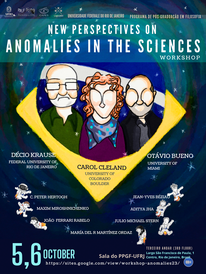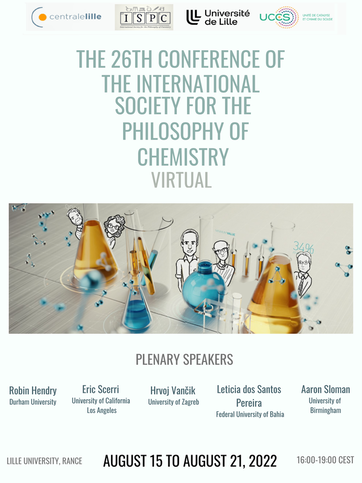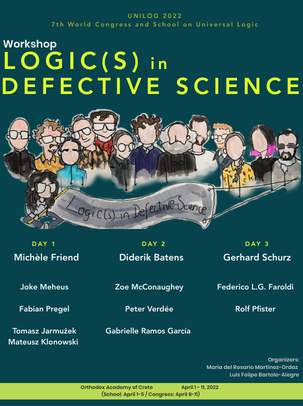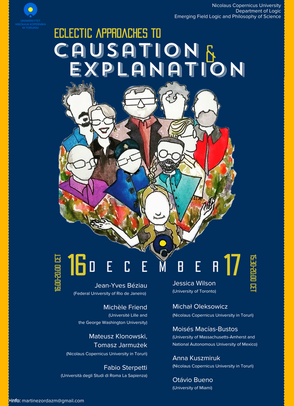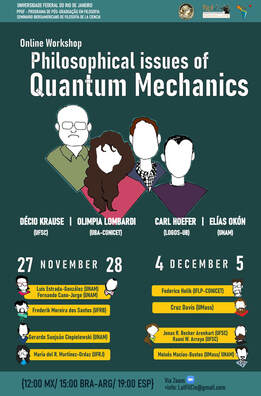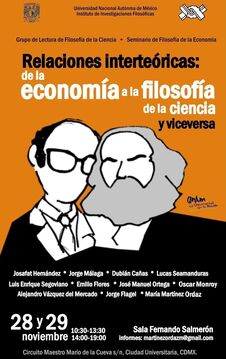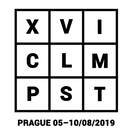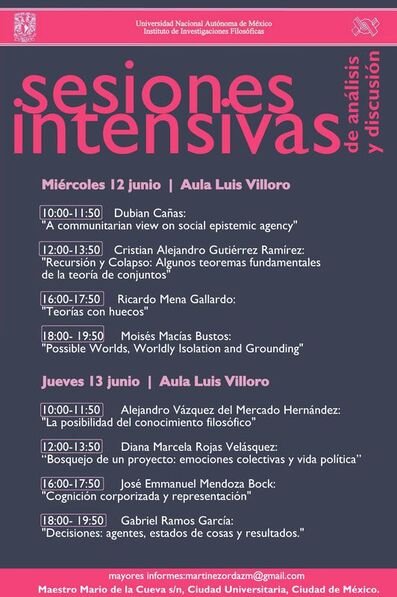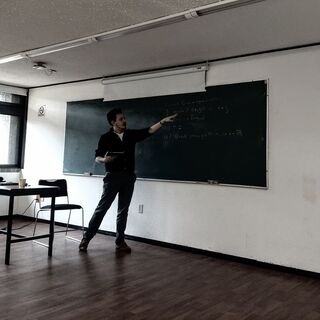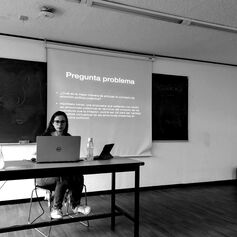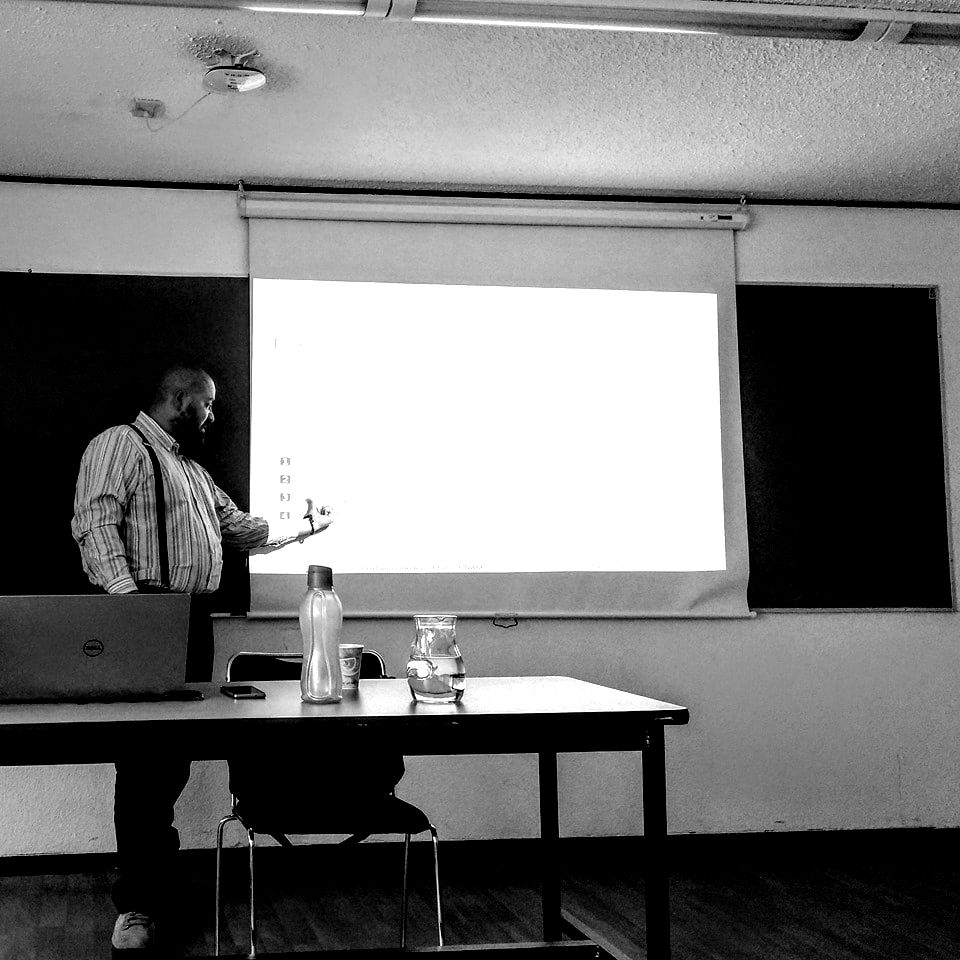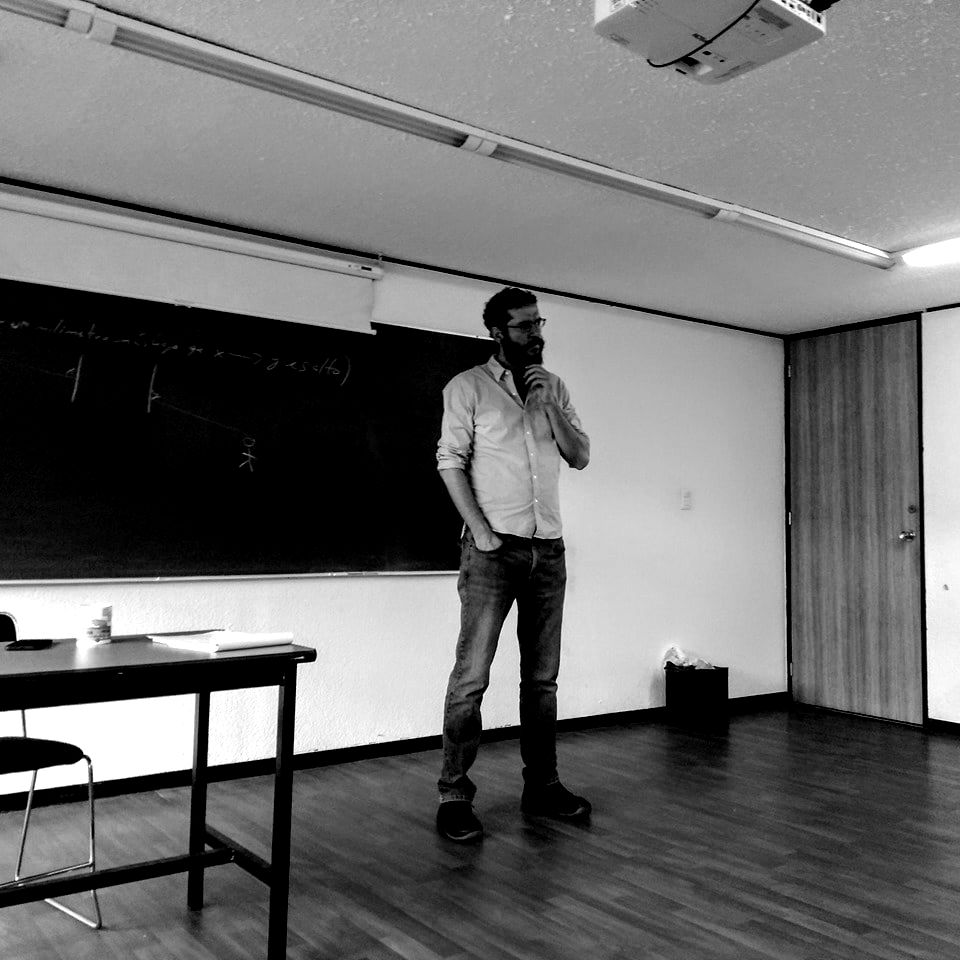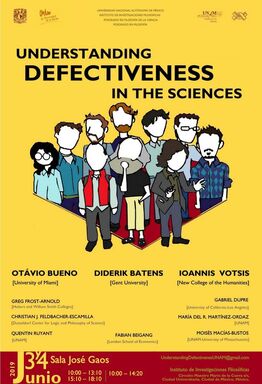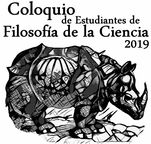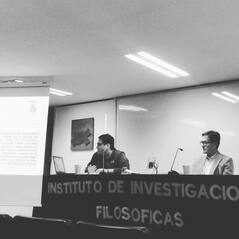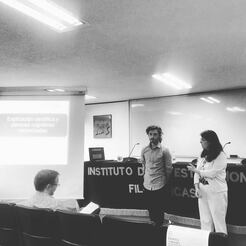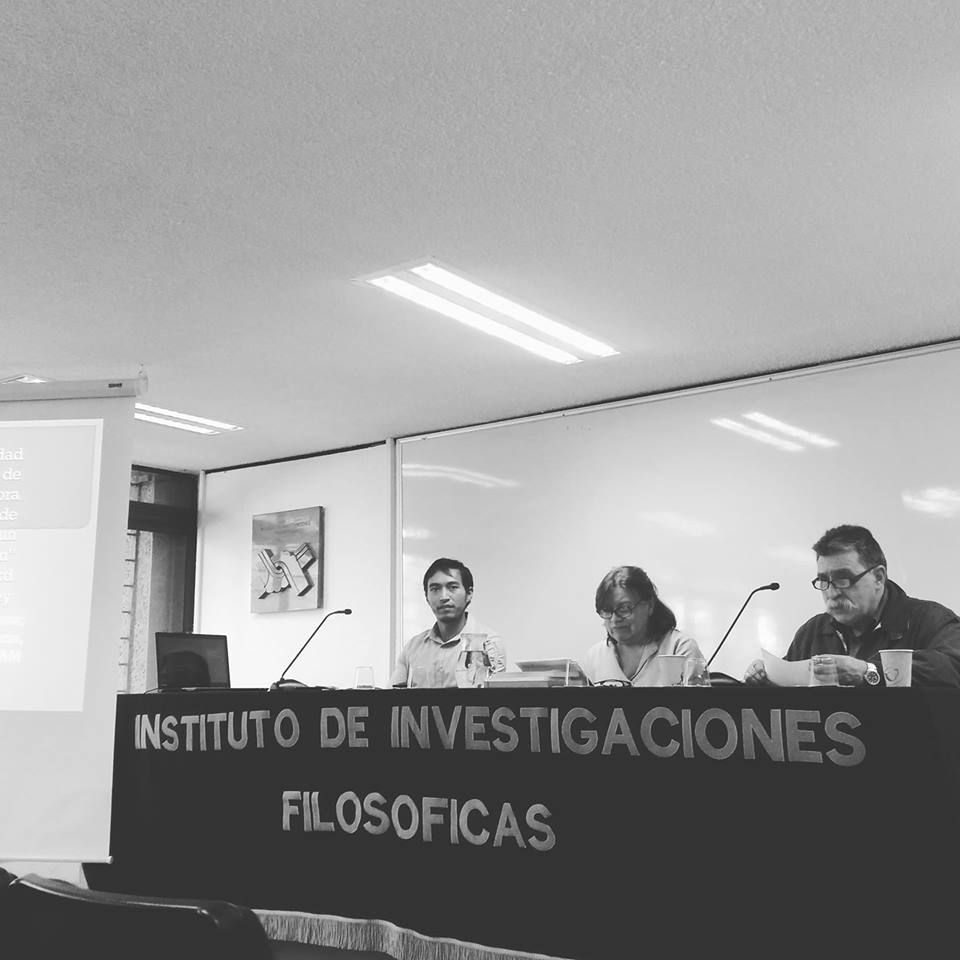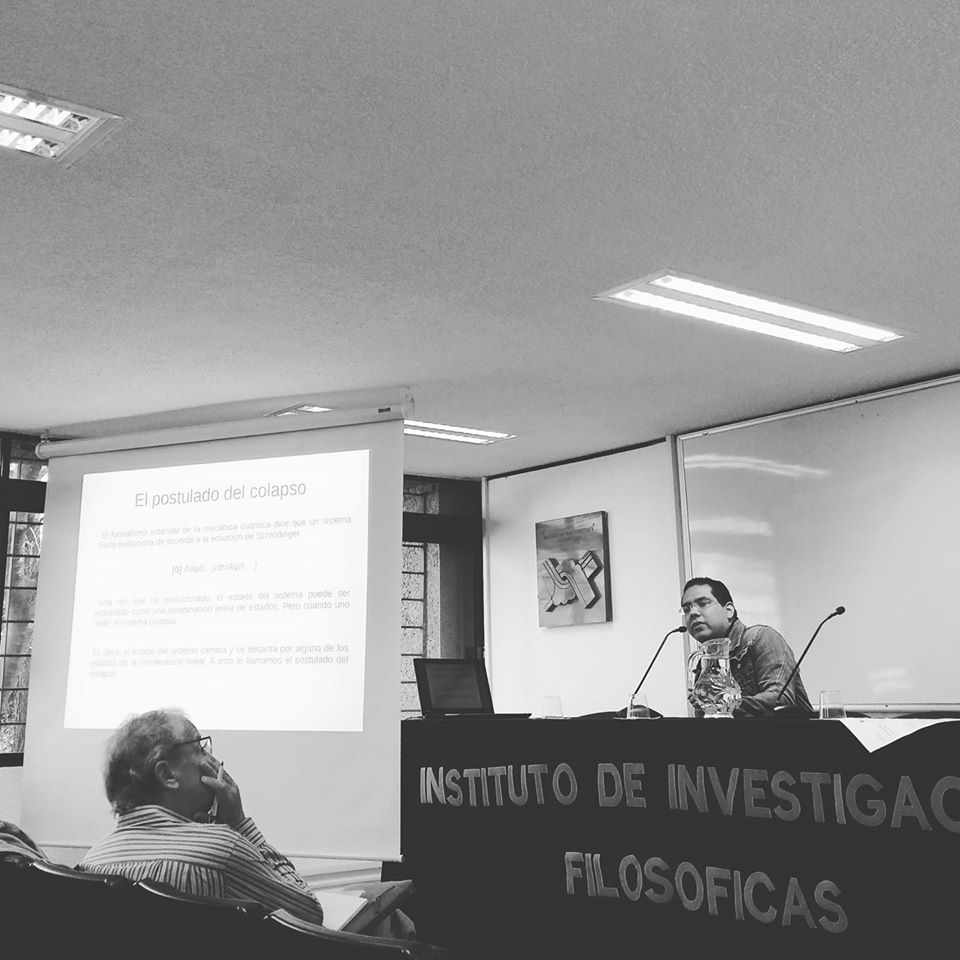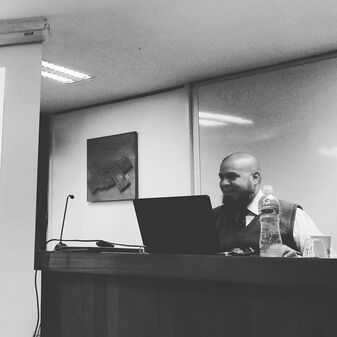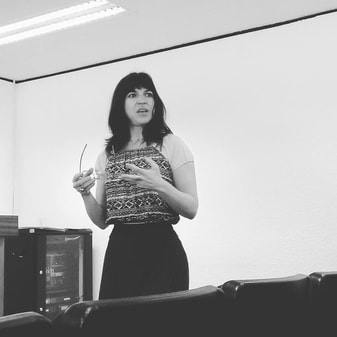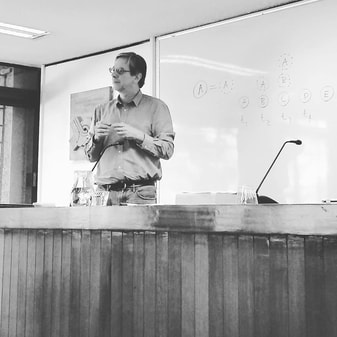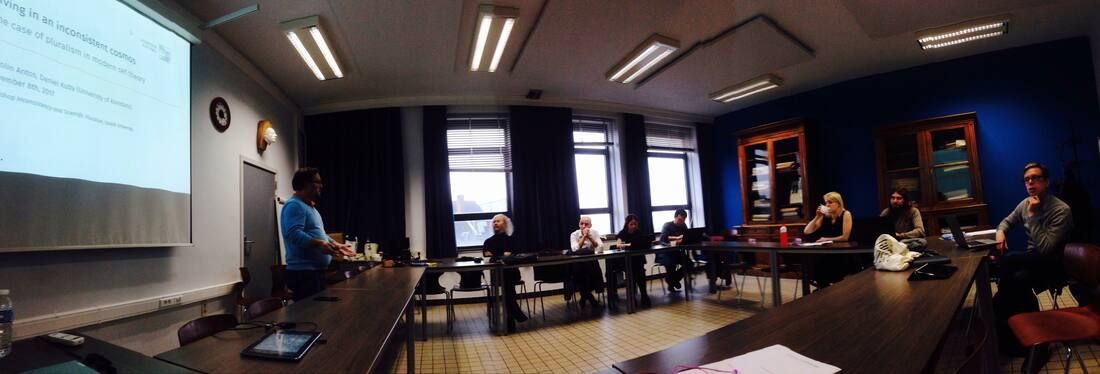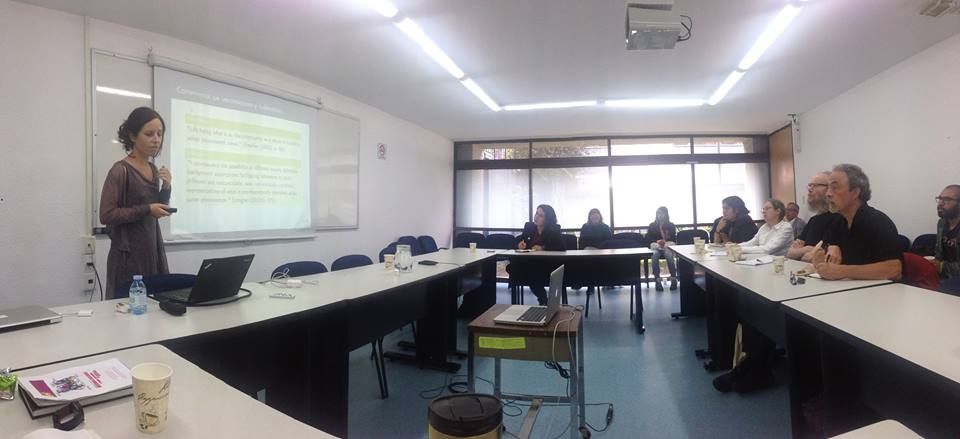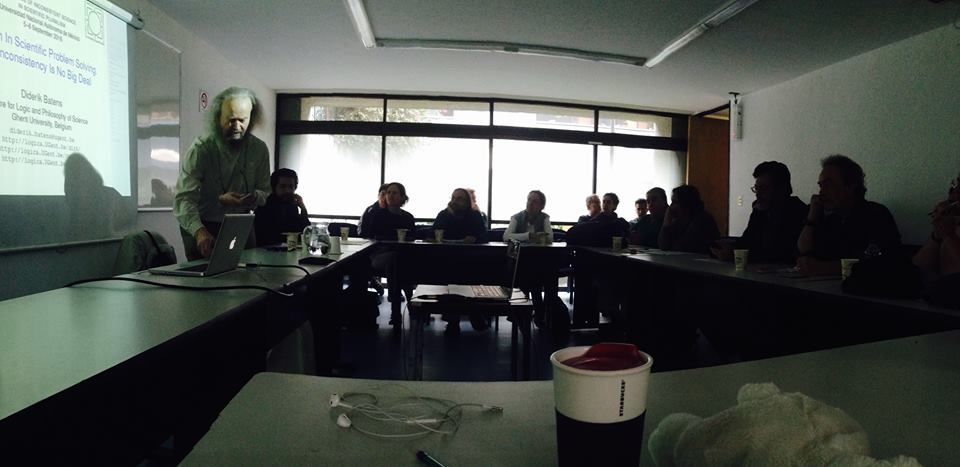Some of the academic events that I have organized include:
Workshop New perspectives on
Anomalies in the Sciences
October 5 and 6, 2023
26th Conference of the
International Society for the
Philosophy of Chemistry 2022
15-21 August, 2022
with Michele Friend
Workshop
Logic(s) in Defective Science
6-11 April , 2022
Joint with Luis FELIPE Bartolo-Alegre
This workshop is devoted to exploring connections between logics and the rational use
of defective information in the sciences, as well as the inferential practices in the sciences
—particularly, those which make use of defective information.
of defective information in the sciences, as well as the inferential practices in the sciences
—particularly, those which make use of defective information.
| CFA.pdf | |
| File Size: | 70 kb |
| File Type: | |
Workshop "Eclectic Approaches to
Causation and Explanation"
16 and 17, December 2021(online)
This workshop aims at combining novel approaches from logic and philosophy
of science in order to shed light on the logical, metaphysical, and epistemic
grounds of causal relations and (different types) of scientific explanation.
of science in order to shed light on the logical, metaphysical, and epistemic
grounds of causal relations and (different types) of scientific explanation.
| full_abstracts_causation_and_explanation_.pdf | |
| File Size: | 1253 kb |
| File Type: | |
| russell-causation.pdf | |
| File Size: | 72 kb |
| File Type: | |
Workshop
Philosophical issues of Quantum Mechanics
Joint with Moisés Macías-Bustos
the workshop...
The online workshop Philosophical issues of Quantum Mechanics is a space designed to provide visibility to the work of young philosophers of physics (specially of Latin American origen).
It includes four sessions (November 27 and 28, December 4 and 5) of three presentations each.
The official languages of the workshop will be Spanish, Portuguese and English.
The workshop is organized through the Federal University of Rio de Janeiro and the Ibero-American Seminar on Philosophy of Science.
It includes four sessions (November 27 and 28, December 4 and 5) of three presentations each.
The official languages of the workshop will be Spanish, Portuguese and English.
The workshop is organized through the Federal University of Rio de Janeiro and the Ibero-American Seminar on Philosophy of Science.
World day of Logic
Joint with Gabrielle Ramos-García
January 14, 2020,
|
|
LABELS-FREE
Workshop
Intertheoretic relations: From Economics to Philosophy of Science and viceversa
28.29/11/2019
a kind message
At UNAM, seminars, reading groups and even research projects succeed thanks to the work of researchers, professors and students, but also thanks to the work of who I call "unofficial academics". They are human beings that don't do philosophy for living, they might have no degree in philosophy, they might have just gotten their degrees and be unemployed, or they might even have no affiliation at all. Nonetheless, they join seminars and reading groups, follow the readings, actively discuss, provide feedback and in general, help the careers of the "official academics".
Sadly, and despite the valuable work that unofficial academics do, they get very little visibility, if any, in our
official academic events. They are often public and almost never speakers. I think this is a huge mistake.
With this in mind, Josafat Hernández and I organized a labels-free workshop. No affiliations nor degrees were mentioned neither in the program nor in the posters. The speakers were members of the philosophy of science reading group and the philosophy of economics seminar --regardless whether we were students, professors, researchers or retired academics, among others. We were just two families trying to know the each other.
The interaction was absolutely great. Philosophers of science learned tons about economics and public policy, and philosophers of economics learned about scientific realism, mereology and so on.
For two full days a bunch of people who love philosophy met to discuss what we enjoy the most. Nobody cared about our official labels, nobody talked about the others' credentials, and more importantly, we got to listen in the open to some of the ones who always listen to us in 'secret'.
I think public universities give us golden opportunities to learn from others -very different others. We should take advantage of this and try build kinder academic communities, in which we can pay more attention to the actual work of our colleagues than to tags and labels.
Sadly, and despite the valuable work that unofficial academics do, they get very little visibility, if any, in our
official academic events. They are often public and almost never speakers. I think this is a huge mistake.
With this in mind, Josafat Hernández and I organized a labels-free workshop. No affiliations nor degrees were mentioned neither in the program nor in the posters. The speakers were members of the philosophy of science reading group and the philosophy of economics seminar --regardless whether we were students, professors, researchers or retired academics, among others. We were just two families trying to know the each other.
The interaction was absolutely great. Philosophers of science learned tons about economics and public policy, and philosophers of economics learned about scientific realism, mereology and so on.
For two full days a bunch of people who love philosophy met to discuss what we enjoy the most. Nobody cared about our official labels, nobody talked about the others' credentials, and more importantly, we got to listen in the open to some of the ones who always listen to us in 'secret'.
I think public universities give us golden opportunities to learn from others -very different others. We should take advantage of this and try build kinder academic communities, in which we can pay more attention to the actual work of our colleagues than to tags and labels.
about
The symposium is divided into two parts: the first tackles the issue of inconsistency and scientific pluralism. This part includes discussions of the possible connections between the different ways in which scientist tolerate contradictions in the sciences and particular kinds of scientific pluralism. This analysis is extremely interesting in itself as the phenomenon of inconsistency toleration in the science has often been linked to the development of a plurality of formal approaches, but not necessarily to logical or scientific pluralism. In fact, scientific pluralism is independent of inconsistency toleration.
The second part of the symposium is concerned with a pluralistic view on contradictions and other defects. This part is devoted to explore under which circumstances (if any) it is possible to use the same mechanisms for tolerating inconsistencies and for dealing with other types of defective information. This part includes reflections on the scope of different formal methodologies for handling defectiveness in the sciences as well as considerations on scientific communicative practices and their connections with the use of defective information and reflections on the different epistemic commitments that scientists have towards defective information.
Contributors: Carolin Antos, Jonas Becker Arenhart, Jody Azzouni, Diderik Batens Bryson Brown, Otávio Bueno, Michele Friend, Décio Krause, Daniel Kuby, Moisés Macías-Bustos, María del R. Martínez-Ordaz, Joke Meheus, and Xavier de Donato Rodríguez.
The second part of the symposium is concerned with a pluralistic view on contradictions and other defects. This part is devoted to explore under which circumstances (if any) it is possible to use the same mechanisms for tolerating inconsistencies and for dealing with other types of defective information. This part includes reflections on the scope of different formal methodologies for handling defectiveness in the sciences as well as considerations on scientific communicative practices and their connections with the use of defective information and reflections on the different epistemic commitments that scientists have towards defective information.
Contributors: Carolin Antos, Jonas Becker Arenhart, Jody Azzouni, Diderik Batens Bryson Brown, Otávio Bueno, Michele Friend, Décio Krause, Daniel Kuby, Moisés Macías-Bustos, María del R. Martínez-Ordaz, Joke Meheus, and Xavier de Donato Rodríguez.
|
|
Intensive Sessions for Philosophical Discussion
Understanding Defectiveness in the Sciences
June 3- 4, 2019
Institute for Philosophical Research, UNAM, Mexico.
joint with Cristian Alejandro Gutiérrez-Ramírez and Luis Estrada-González
about
It is well known that the presence and use of defective ---false, imprecise, conflicting, incomplete, inconsistent, partial, ambiguous and vague--- information in science is ubiquitous and tends to be naturally seen as part of the dynamics of scientific development. Nonetheless, it is also thought that to be satisfactorily understood, bodies of information should fulfill certain epistemic virtues. All this considered, philosophers and logicians of science should start wondering which are the possible connections between scientific understanding and the constant use of defective information in science.
The workshop welcomes formal and informal contributions on the different ways to explain and understand defective information in the sciences.
The workshop welcomes formal and informal contributions on the different ways to explain and understand defective information in the sciences.
Coloquio de Estudiantes de Filosofía de la Ciencia 2019
joint with Blanca Cárdenas and Jorge Armando Romo
|
4-6 March 2019
National Autonomous University of Mexico, Mexico City, Mexico. "Coloquio de Estudiantes de Filosofia de la Ciencia 2019" was a conference in which 11 Philosophy of Science Mexican grad students presented their most recent work and 11 of our finest professors commentend on those papers. The conference took place on March 4-6, 2019, at the Institute for Philosophical Research-UNAM. |
Normativity across Disciplines
22 and 23 of October 2018
National Autonomous University of Mexico, Mexico City, Mexico.
joint with Cristian Alejandro Gutiérrez-Ramírez
about
What ought to be the case? What people ought to think or how they ought to reason? What sciences ought to tell us about the world? All these are normative questions that, since the very beginning, have shaped philosophy in a serious way. While in the philosophical literature it is possible to identify very diverse types of normative questions, there is a peculiar kind that, for decades, has been considered as a paradigmatic case of normativity: formal normativity.
Formal normativity is mostly concerned with how certain rules and structures constrain different areas of mathematics, logic, physics, and metaphysics; in some cases, formal normativity has some implications in our understanding of human reasoning, however, it does not go much further. Yet, the scope of such type of normativity seems to be not only formal. As a matter of fact, the majority of the intuitions behind formal normativity are also present (and fundamental) in the development of many other disciplines, such as epistemology, cognitive sciences, empirical sciences and even aesthetics.
The workshop Normativity across Disciplines aims at discussing the connections between formal normativity and other areas of knowledge. For this workshop, we want to move forward discussions on formal normativity from logic, mathematics and other formal areas, to other –not necessarily formal–disciplines. We think that reflections on the connections between formal and informal normativity can shed light on the nature of the constraints that philosophy and the sciences share, as well as on the nature of the normative differences among them.
The workshop’s title is Normativity across disciplines, and this will be a two-day event that will address questions such as:
- Is it possible to endorse pluralistic commitments regarding normativity in formal sciences?
- Does a specific type of disciplines (say formal, empirical, social) entail specific types of normativity?
- Do particular kinds of normativity entail particular kinds of consequences regarding human reasoning?
- Is it possible to identify specific types of normativity that are proper of human cognition and human reasoning?
- How can non-formal disciplines inform formal normativity?
Formal normativity is mostly concerned with how certain rules and structures constrain different areas of mathematics, logic, physics, and metaphysics; in some cases, formal normativity has some implications in our understanding of human reasoning, however, it does not go much further. Yet, the scope of such type of normativity seems to be not only formal. As a matter of fact, the majority of the intuitions behind formal normativity are also present (and fundamental) in the development of many other disciplines, such as epistemology, cognitive sciences, empirical sciences and even aesthetics.
The workshop Normativity across Disciplines aims at discussing the connections between formal normativity and other areas of knowledge. For this workshop, we want to move forward discussions on formal normativity from logic, mathematics and other formal areas, to other –not necessarily formal–disciplines. We think that reflections on the connections between formal and informal normativity can shed light on the nature of the constraints that philosophy and the sciences share, as well as on the nature of the normative differences among them.
The workshop’s title is Normativity across disciplines, and this will be a two-day event that will address questions such as:
- Is it possible to endorse pluralistic commitments regarding normativity in formal sciences?
- Does a specific type of disciplines (say formal, empirical, social) entail specific types of normativity?
- Do particular kinds of normativity entail particular kinds of consequences regarding human reasoning?
- Is it possible to identify specific types of normativity that are proper of human cognition and human reasoning?
- How can non-formal disciplines inform formal normativity?
Inconsistency and Scientific Pluralism
November 8, 2017
Joint with Diderik Batens (UGent), Joke Meheus (UGent), Dunja Seselja (Ruhr-Universität Bochum) and Federica Russo (University of Amsterdam)
|
about
This workshop is devoted to connections between inconsistency toleration and scientific pluralism. Some views on the topic have recently been analyzed in the HumanaMente Special Issue Beyond Toleration? Inconsistency and Pluralism in the Empirical Sciences (available at: http://www.humanamente.eu/index.php/pages/64-issue32). Different forms of pluralism discussed in the issue include evidential pluralism (Parkkinen, Russo, Wallmann), methodological pluralism (Friend, Llored), and logical pluralism (Batens). We welcome submissions addressing the following and related questions:
|
The Place of inconsistent science in scientific pluralism
September 5-6, 2016.
National Autonomous University of Mexico, Mexico City, Mexico.
joint with Luis Estrada-González
|
about
The workshop’s title is The Place of Inconsistent Science in Scientific Pluralism, and this will be a two-days event that will address questions such as:
|
2nd Philosophy Graduate Conference of the Institute for Philosophical Research-UNAM
March 9th and 10th, 2016.
National Autonomous University of Mexico, Mexico City, Mexico.
Joint with Efraín Gayosso, Erika Torres-Torres, Bertín Ortega-Polito and Nancy Nuñez.
|
about
Videos The 2nd IIFs-UNAM Philosophy Graduate Conference was an event organized by philosophy students from UNAM. The main goal was to promote the academic interchange among the graduate students from different universities, the distinguished keynote speaker, and the philosophical community. The event took place on March 9th and 10th. According to the conference timetable, the sessions took place from 10:00 to 14:00 hours and from 16:00 to 20:00 hours. The keynote speaker is François Recanati (Institut Jean Nicod).The conference had the participation of seven graduate students who presented their papers and will received a reply by a UNAM-student. Talks offered by the following graduate students: Douglas Blue (Harvard University), A. Arturo Javier Castellanos (Syracuse University), Melisa Gutiérrez Vivanco (Universidad Nacional Autónoma de México), Kevin J. Lande (University of California, Los Angeles), Freya Mobus (Cornell University), Georgia R. Rainer (Florida State University), and Manuel Rodeiro (City University of New York). Replies by the following students: Samuel A. Lomelí-Gómez (FFyL, UNAM), Moisés Macías Bustos (Posgrado en Filosofía de la Ciencia, UNAM), Jesús Mauricio Andrade Guzmán (IIMAS, UNAM), Javier Alejandro Godoy (Posgrado en Filosofía, UNAM), Efraín Gayosso Cabello (Posgrado en Filosofía, UNAM), María del Rosario Martínez Ordaz (Posgrado en Filosofía de la Ciencia), and Raúl Ibarra Herrera (FFyL, UNAM). Additionally, the sessions were chaired by researchers from the institute who have experience in working on different areas of philosophy and in the organization of seminars. Chairs: Luis Estrada, Maite Ezcurdia, Olbeth Hansberg, Raymundo Morado, Ana Rosa Pérez, , Cristian Timmermann and Alessandro Torza. We believe that the participation of students and researchers contributes to building a space of philosophical discussion and debate of high quality. The abstracts of the papers that were presented can be accessed by the following link: https://goo.gl/KxrECC |
